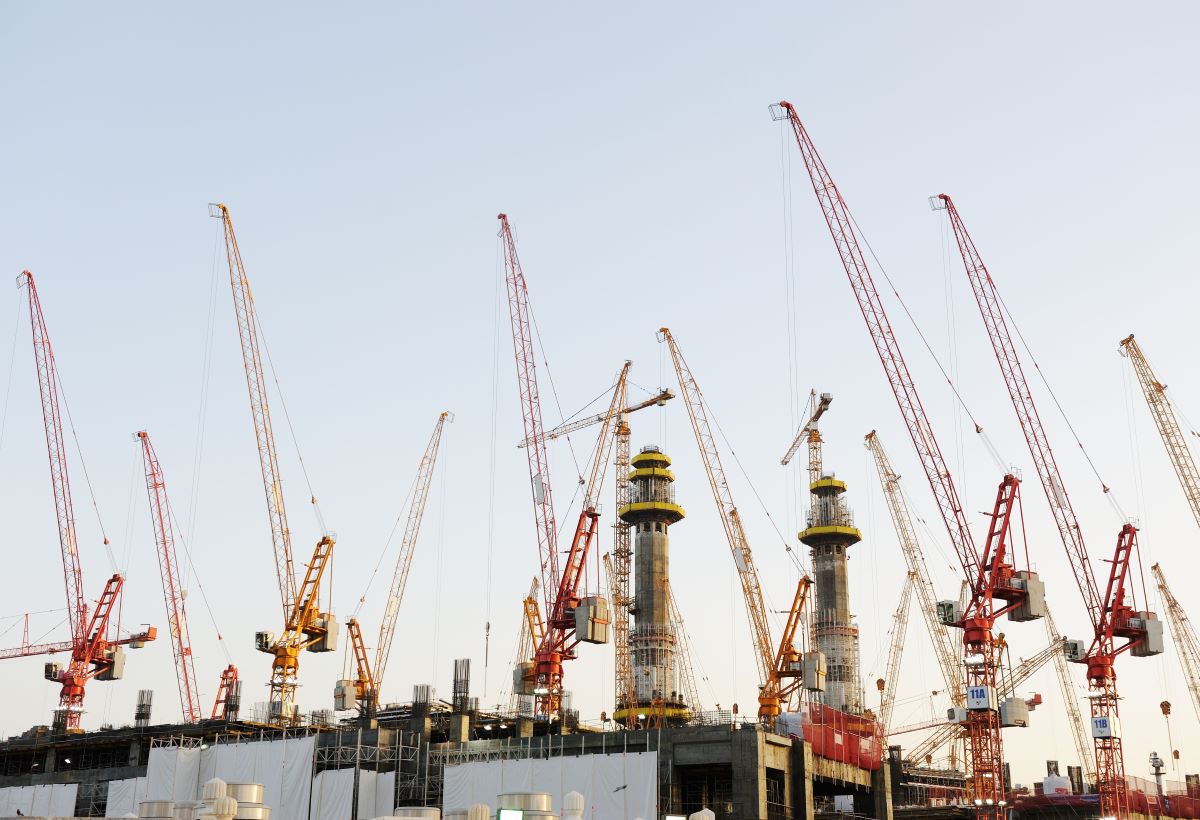The International Construction Market Survey (ICMS) has singled out the Middle East construction industry as a “relative bright spot” in a challenging global market.
Conducted by international professional services consultancy Turner & Townsend, the survey says many parts of the world are experiencing high construction costs and critical labor shortages. However, the Middle East construction industry continues to experience high growth, as countries in the region invest in economic diversification initiatives.
Commenting on the ICMS report, Turner & Townsend’s director and head of Middle East real estate and major programs Mark Hamill said: “The Middle East remains a hub for investment, with some of the most ambitious infrastructure and development programs anywhere in the world. With strong pipelines and government-backing, these nation-building agendas are set to transform the region over the next decade.”
Regional overview
According to the survey, Saudi Arabia leads the region in new project opportunities and major infrastructure investment initiatives, with the average cost to build in Riyadh seen at $2,379 per sqm. Turner & Townsend foresees costs rising by 7.5% for the remainder of 2023 as Saudi Arabia sees unprecedented investment in new ‘giga-projects’.
As part of its Vision 2030 program, Saudi’s construction activity is picking up pace with massive developments such as NEOM and flagship entertainment projects such as Qiddiya near Riyadh, to name just a few.
Saudi Arabia’s construction market, valued at $133.1 bn in 2022, is expected to achieve an annual aggregate growth rate of more than four percent from 2024 to 2027.
Meanwhile, luxury development will continue to drive construction activity in the UAE, especially in the tourism sector, as well as new public infrastructure developments, the report said.
The average cost escalation for the construction industry in the UAE has remained steady from 2022 to the current year at four percent in Abu Dhabi and five percent in Dubai.
Elsewhere in the region, Turner & Townsend’s report says the construction pace in Doha is cooling down after the massive build up for the FIFA World Cup in 2022
According to ICMS, Doha is now the most expensive location to build in the region, with an average cost of $2,588 per sqm. Qatar has seen sustained cost inflation due to extensive construction activity in recent years.
Read: Confidence high for construction market in UAE, Saudi Arabia
Global challenges
Data from the ICMS show that 74.2% of global markets are experiencing rising construction costs and a ‘skills shortage’.
From a survey of 89 global cities, the US dominates the rankings of the most expensive places to build, with six of its cities in the top ten. New York is the most expensive market, with an average build cost of $5,451 per sqm, while San Francisco is just behind with $5,200.
The survey also shows that the Middle East construction market has been less affected by supply chain disruption and softening growth seen in other parts of the world.
Risks and outlook
While the outlook for the Middle East construction sector is positive, Turner & Townsend has warned that capacity and resource would have to be carefully coordinated to avoid risks to project delivery and offset growing competition for labor.
“The abundance of work needs to be matched by careful planning to avoid the risk of markets overheating and costs rising. Programs need to focus on intelligent procurement that builds local capacity in the skilled workforce and attracts new market entrants, too. This will ensure that projects are creating capable and resilient supply chains, rather than competing for resources,” he added.
For more construction and real estate stories, click here.








